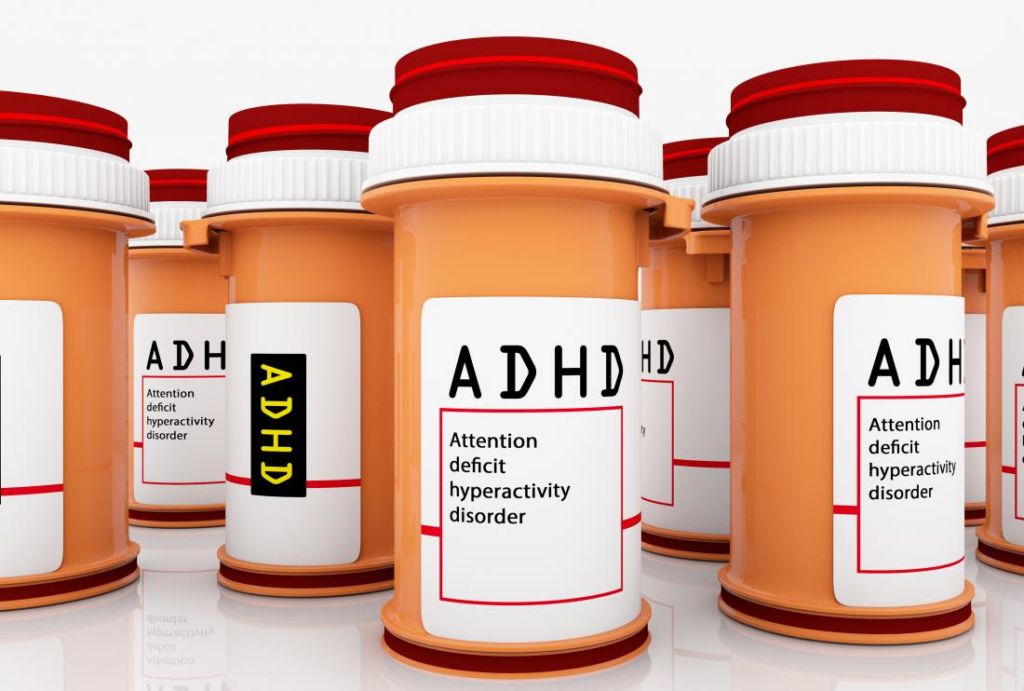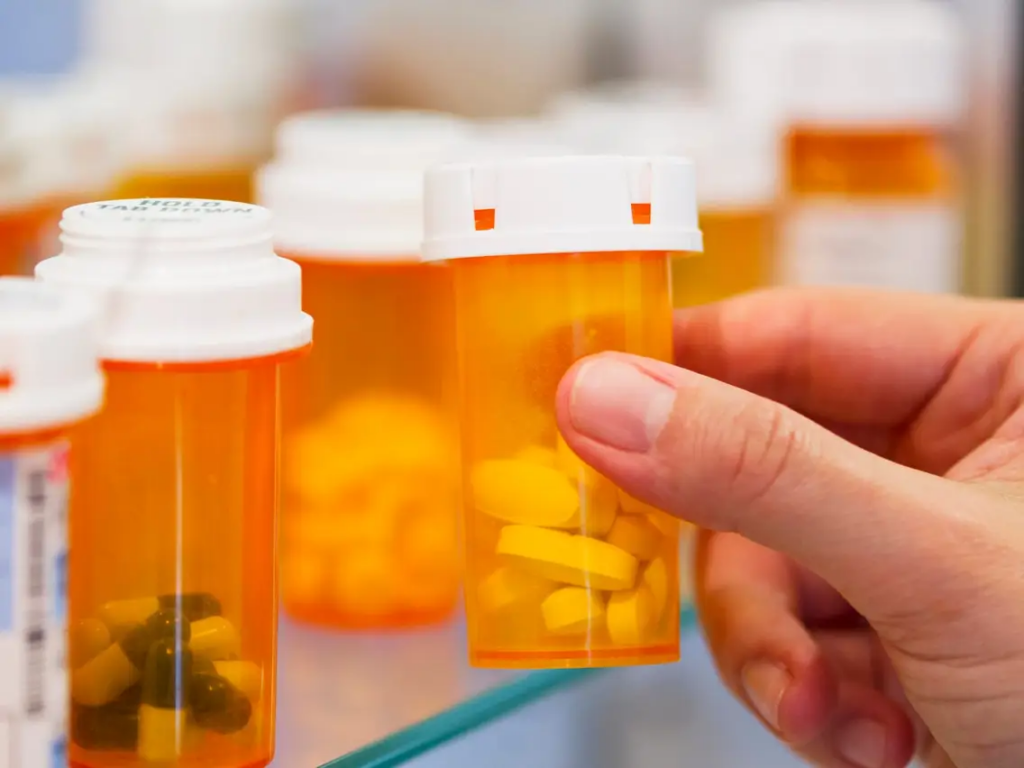ADHD, or attention deficit hyperactivity disorder, is a neurodevelopmental condition that impacts children and usually continues into adulthood.
People with ADHD can be inattentive, highly impulsive, and have trouble focusing on one task, among other symptoms.
Since this condition can affect a person’s education, professional life, and social relationships, many people use medication to treat ADHD. Let’s learn more about ADHD medication below.
How Does ADHD Medication Work?

ADHD medication doesn’t cure the condition but eases its symptoms. For instance, the medication may make you more focused, reduce hyperactivity, and help you ignore distractions.
There are many types of ADHD medication, but most of them affect the neurotransmitters in your brain, such as dopamine.
Neurotransmitters facilitate the transfer of information between brain cells and enhance brain function.
In people with ADHD, the neurotransmission process gets disrupted, making them restless, impulsive, and distracted. So, ADHD medications help to deal with those symptoms.
Stimulants for ADHD
Many people with ADHD get prescribed Adderall , a stimulant with a combination of amphetamine and dextroamphetamine that reduces fatigue and improves concentration.
Other common ADHD stimulants include Concerta (methylphenidate), Vyvanse (lisdexamfetamine dimesylate), and Ritalin (methylphenidate).
Most stimulants increase the neurotransmitters in the brain: dopamine and norepinephrine. But in terms of formulation, there are two different options:
Immediate-release
Immediate-release stimulants work fast, and their effect lasts for up to 4 hours. Because of that, you may have to take them several times daily.
After the medication wears off, you experience a sharp decrease in energy levels, severe hunger, and low mood, often called " the rebound effect " or " the crash."
Extended-release
Long-acting stimulants work 6 to 8 hours or up to 16 hours, and you typically need one dose daily. Many people prefer extended-release stimulants to stabilize moods and energy at school or work.
Stimulants are effective for moderate to severe ADHD and relieve symptoms in 70% to 80% of people with this disorder. However, you should only use stimulants as prescribed, as there is a potential for abuse.
Non-stimulants for ADHD

When stimulants don’t work or cause unbearable side effects, your doctor may prescribe non-stimulants like Strattera (atomoxetine), Catapres (clonidine), and Intuniv (guanfacine).
These medications work by increasing concentrations of another neurotransmitter, norepinephrine, in your brain.
Non-stimulants usually take three to four weeks to ease ADHD symptoms. Once they take full effect, you have improved attention and focus.
The significant advantage of non-stimulants over stimulants is a lower potential for abuse or addiction.
Antidepressants
Although the FDA hasn’t approved any antidepressants for ADHD, some doctors prescribe them to ease ADHD symptoms, especially where ADHD overlaps with depression or anxiety disorder.
Antidepressants for ADHD, like Wellbutrin (bupropion) and Effexor (venlafaxine), regulate the concentrations of dopamine and norepinephrine in the brain and help improve attention and manage hyperactivity.
However, antidepressants are not for everyone as they take longer to work and are less effective for ADHD than stimulants.
Positive and Negative Effects of Taking Medication for ADHD
Both stimulant and non-stimulant ADHD medications have positive and negative effects.
Moreover, ADHD medications may work differently for different patients, so doctors caution against self-medication for ADHD symptoms.
However, a well-chosen medicine can be helpful, so let’s review the general pros and cons.
Positive Effects of ADHD Medication
Effectiveness
Hundreds of peer-reviewed scientific studies back FDA-approved ADHD medications. In short, ADHD medication works for most people and is likely to help manage your inability to focus, restlessness, forgetfulness, and other ADHD symptoms.
Enhanced productivity at work or school
People with ADHD are less focused and motivated at school and have trouble understanding and retaining information, which can lead to poor academic performance.
ADHD improves learning outcomes by helping students maintain attention, ignore distractions, and regulate emotions.
ADHD symptoms like an inability to concentrate or constant procrastination can also affect work productivity.
Employees with this condition struggle to set priorities, are constantly behind schedule, and often miss important details.
One of the major benefits of ADHD medication for adults is ending work distractions, resulting in improved productivity.
Improved social relationships
Some people with ADHD struggle with building social relations. Hyperactivity, impulsivity, and other symptoms can make it difficult for them to bond with friends and coworkers.
For example, you may jump between topics during conversations and interrupt other people as they talk.
ADHD medication improves brain functions, enabling you to use social skills better and more often.
When used jointly with behavioral therapy and skill training, ADHD medication helps people develop better peer relationships.
Reduced risk of substance abuse
ADHD carries a risk of substance abuse, where impulsive and hyperactive young adults try marijuana, nicotine, alcohol, and other substances to calm their thoughts and achieve mild sedation.
Treating ADHD with medications reduces self-medication, making people less likely to use senses for relief.
Disadvantages of ADHD Medication
Side effects
Many patients using ADHD medication experience side effects. For instance, stimulants may cause insomnia, loss of appetite, dizziness, headaches, weight loss, nausea, upset stomach, and irritability.
Non-stimulants may cause drowsiness, fatigue, vomiting, mood swings, and nausea.
Major side effects from ADHD medication include changes in heart rate and blood pressure. Your doctor will inquire about your medical and family history because people at risk of heart problems are not good candidates for some ADHD medications.
Risks of dependency
People using stimulants for performance enhancement are at risk of dependency and addiction. Dependency may occur when a person uses medication for longer or in higher doses than prescribed.
However, individual specifics of the bodily response to medication as well as comorbid conditions may influence the development of dependency as well.
In addition, stopping such medications abruptly can cause withdrawal effects.
To avoid dependency, addiction, and withdrawal effects, following your doctor’s guidelines and regularly attending follow-ups to adjust your treatment is important.
You may also be recommended to implement non-medication treatments to support the effects of medication and develop strong self-help coping mechanisms. Remember to taper off medication under the doctor’s supervision.
Which ADHD Medication Is Right for You?
If you are considering medication for your ADHD, you must don’t self-medicate. Instead, consult a physician who oversees your reaction to various drugs and tailors your dosage.
Most people respond well to stimulants, although physicians may prescribe different types of ADHD medication to different patients depending on their symptoms, health history, treatment goals, and other factors.
If you can’t bear the side effects of stimulants, your doctor will probably put you on non-stimulants and observe your reaction to ensure effectiveness.
In Conclusion
While ADHD medication doesn’t cure the condition, it alleviates its symptoms, making you more productive at work and school and better at social relationships.
Overall, ADHD medications are safe when used under a physician#039;s supervision and will enhance your quality of life.

Jean Smith is a fitness enthusiast and blogger who focuses on fitness and a healthy lifestyle. She is passionate about assisting people in living healthier lifestyles and is constantly on the lookout for new and creative methods to stay fit and healthy. Her articles are excellent resources for anyone interested in improving their health and fitness.
